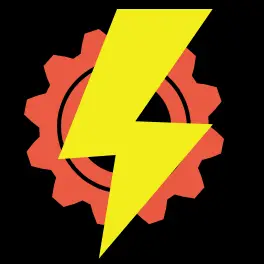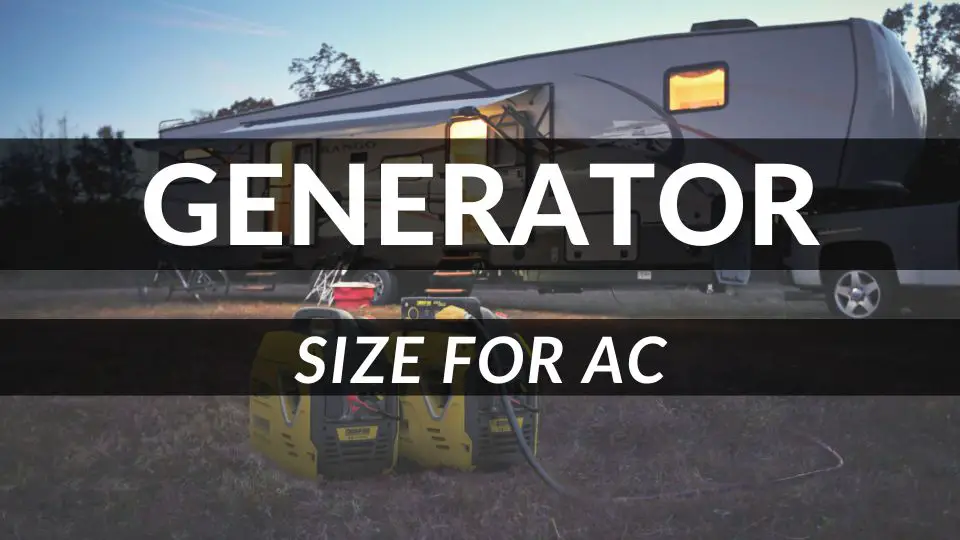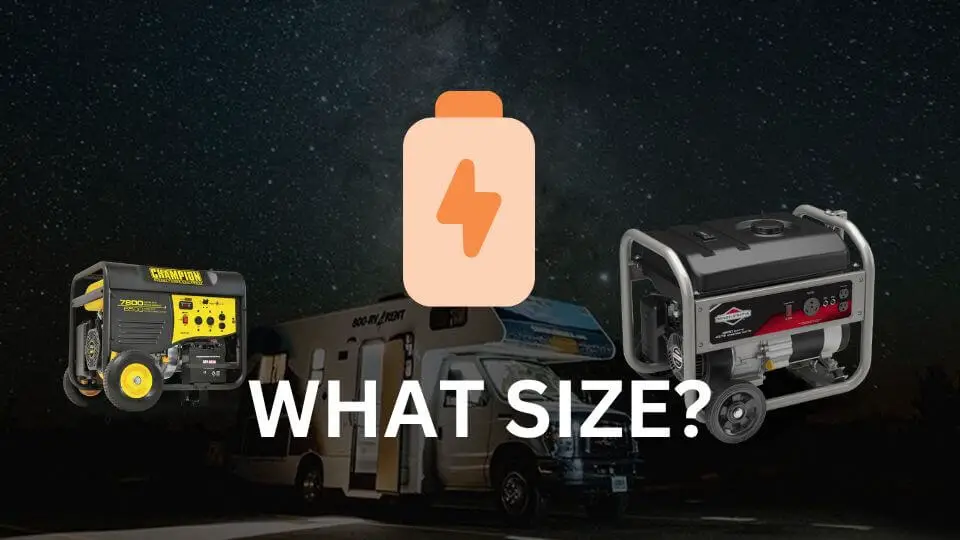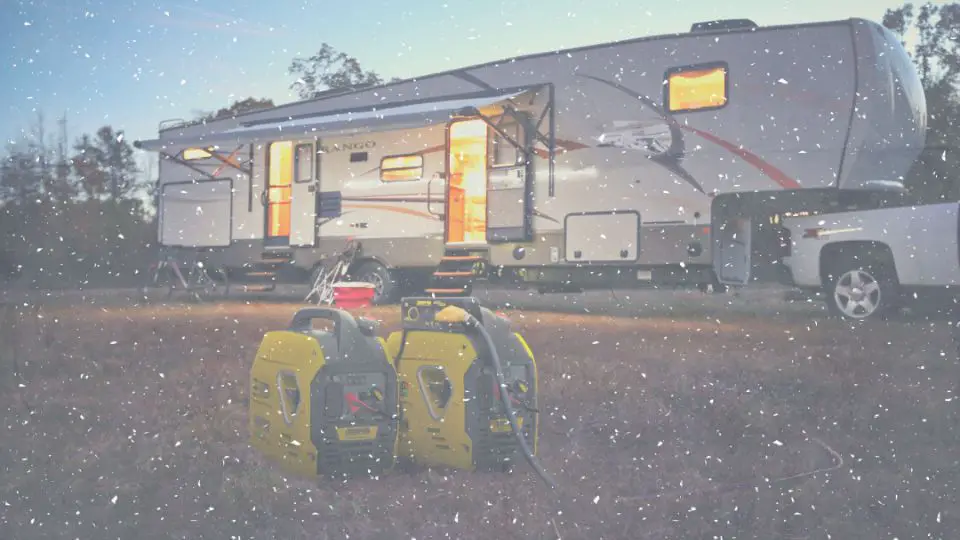This post may contain affiliate links. As an affiliate, we earn from qualifying purchases. We get commissions for purchases made through links in this post.
One of the most power-consuming appliances in an RV is the air conditioner. To run an RV AC, you need a generator that can provide enough power to meet its requirements.
Choosing the right size generator for your RV AC can be a bit tricky. The size of the generator you need depends on several factors, including the size and power of your AC unit, what other appliances you plan to run at the same time, and your average power consumption. A generator that’s too small won’t be enough to power your AC, while one that’s too big will be unnecessarily expensive, bulky, and noisy.
To guarantee that you have the correct size generator for your RV AC, you need to perform some thorough measurements and analysis. While all this sounds complicated, you are at the right place and I will do my best to provide you with some concrete examples and recommended generators for different RV ACs.
RV AC Power Requirements and How to Calculate Them
When embarking on a journey in your camper, ensuring a comfortable living environment becomes crucial. Among the various aspects to consider, the power requirements for your RV’s air conditioning system play a vital role. Before delving into the intricacies of calculating these power needs, it’s essential to develop some understanding of the fundamental principles behind AC power needs.
Understanding AC Power Requirements
Unlike the conventional metric of Watts, AC power is expressed in BTU (British Thermal Units), an energy measurement that specifically quantifies the heat energy absorbed or released during cooling processes. This unique unit provides a comprehensive understanding of an air conditioning system’s ability to regulate temperatures within a given space. As BTUs are intimately linked to thermal energy transfer, they offer a more direct insight into the cooling performance of the system, making them a crucial factor to consider when evaluating the efficiency and effectiveness of air conditioning units.
The power of an RV AC unit is determined by its size and potential. Commonly, RV AC units come in either 13,500 Btu or 15,000 Btu options, with some other sizes available. For instance, a 13,500 Btu unit requires approximately 2,800 to 3,000 watts during startup and about 1,300 to 1,500 watts while running. CA 15,000 BTU unit, on the other hand, requires approximately 3,500 to 4,000 watts for startup and 1,500 to 1,800 watts for continuous operation. These BTU numbers and corresponding Wattage requirements are crucial when deciding on which generator size you will need.
Calculating AC Power Requirements for RVs
To accurately determine the power requirements for your RV’s air conditioning (AC) system, it’s essential to commence with an evaluation of the AC’s BTU rating and power efficiency. Typically, these figures, including starting and running Watts, can be found in your RV manual.
Once you’ve established these foundational values, the calculation process involves a comprehensive assessment of all devices and appliances that will operate at the same time. This encompasses not only the RV AC unit but also other power-consuming devices like refrigerators, microwaves, and TVs.
A practical example of calculating your RV’s AC power requirements involves several steps:
- Identify Device Wattages: Determine the starting and running Wattages for each appliance, including AC.
- Total Starting Watts: Add up the starting Watts of all devices that will be in use simultaneously, including the AC.
It’s worth noting that the power needs of RV appliances and devices can diverge based on their specific makes and models. Hence, it’s prudent to refer to the owner’s manual or the manufacturer’s specifications for precise power requirements.
Once you’ve derived the comprehensive power requirement for your RV, you can then select a generator that meets or exceeds this need. Opting for a generator with a modest surplus of power capacity is recommended, as it ensures the system’s capability to manage unexpected surges or fluctuations.
Real Examples of Generator Size Calculation for an RV AC
Let’s see some real examples of generator size calculations:
- Air Conditioning (AC) unit 13,500 BTU: Starting Watts = 2,750W, Running Watts = 1,250W
- Refrigerator: Starting Watts = 800W, Running Watts = 150W
- Microwave: Starting Watts = 1,200W, Running Watts = 1,000W
- TV: Running Watts (no starting Watts required) = 80W
Now, let’s calculate the total starting watts needed when all devices are operating simultaneously, including the AC:
Total Wattage Requirements = AC Starting Watts + Refrigerator Starting Watts + Microwave Starting Watts + TV Running Watts = 2,750W + 800W + 1,200W + 80W = 4,830W.
So, when all devices, including the 13,500 BTU AC, are starting simultaneously, you would need a generator of at least 4,750 Watts. Keep in mind, this is an extreme scenario of starting each piece of equipment simultaneously. In most cases, you will be fine with a 4,300 – 4,500W portable generator with 13K BTU aircon.
No products found.
Let’s consider an example when running a 15,000 BTU AC:
- Air Conditioning (AC) unit 15,000 BTU: Starting Watts = 3500W, Running Watts = 1,500W
- Refrigerator: Starting Watts = 800W, Running Watts = 150W
- Microwave: Starting Watts = 1,200W, Running Watts = 1,000W
- TV: Running Watts (no starting Watts required) = 80W
Now, let’s calculate the total starting watts needed when all devices are operating simultaneously, including the AC:
Total Wattage Requirements = AC Starting Watts + Refrigerator Starting Watts + Microwave Starting Watts + TV Running Watts = 3,500W + 800W + 1,200W + 80W = 5,580W.
So, when all devices, including the 15,000 BTU AC, are started up at the same time, you would need at least 5,580 generator capacity. Having said that, this is a very edge case, and you are unlikely to run such demanding equipment altogether. You will be good to go with a 5,000 – 5,000W generator in 99% of cases.
No products found.
Recommended Generators For Running RV AC
In order to help you choose the right size generator for running an AC in your RV, I’ve selected 5 recommendations for generators that are well-suited to running your motorhome’s air conditioning system. Choosing the right generator is essential to ensure that you can enjoy a comfortable and cool environment in your RV, especially during hot summer days. Air conditioning units tend to have high power demands, so selecting a generator with sufficient capacity and reliable performance is crucial.
Below, I’ve listed RV-ready generators that range from 4,500 to 5,500 Watts of output power for startup. A rule of thumb when choosing the one that suits your RV is to first figure out if your RV is equipped with an aircon of around 13,500 BTU or a 15K BTU model. In the first case, you’d need to pick a generator from a 4,500 Watts range, while for a bigger aircon, make sure to choose one of the 5K+ Watts models.
Table could not be displayed.Choosing the Right Generator
When it comes to choosing the right generator for your RV air conditioning unit, there are a few things to consider. The size of your generator, the type of generator, and other factors all play a role in determining which generator is the best fit for your needs.
Types of Generators
There are two main types of generators to consider when looking for a generator for your RV air conditioning unit: portable and built-in. Portable generators are typically less expensive and easier to move around. Built-in generators, on the other hand, are more expensive and require professional installation, but they are more convenient and quieter.
Sizing Generators for RVs
When it comes to sizing generators for RVs, it’s important to consider the power requirements of your air conditioning unit. Generally, air conditioning units require between 1,250-2,500 Watts to operate, depending on the size and power of the unit. To determine the correct size of generator for your RV, you’ll need to calculate the starting and running Wattage of your air conditioning unit.
Factors to Consider When Choosing a Generator
In addition to the type and size, there are other factors to consider when choosing a generator for your RV AC unit. Some of these factors include:
- Fuel Type: Portable generators can run on a variety of fuels, including gasoline and propane. Consider which fuel type is most convenient and cost-effective for your needs.
- Noise Level: Generators can be noisy, so consider the noise level of the generator you choose. Look for generators with noise reduction features or consider built-in generators, which tend to be quieter.
- Cost: Generators can vary in price depending on the type, size, and features. Consider your budget when choosing a generator.
- Maintenance: Generators require maintenance, so consider the level of maintenance required for the generator you choose.
By considering all of these factors, you can choose the right generator to power your RV air conditioning unit and ensure a comfortable and enjoyable camping experience.
Installation and Maintenance
When it comes to installing and maintaining a generator for an RV air conditioner, there are a few important considerations to keep in mind. Proper installation and regular maintenance can help ensure that the generator runs smoothly and efficiently, providing reliable power for the AC unit.
Installation Considerations
Before installing a generator for an RV air conditioner, it’s important to consider the following factors:
- Generator Size: The size of the generator needed will depend on the power requirements of the AC unit. Refer to the manufacturer’s specifications to determine the appropriate size.
- Placement: The generator should be placed in a well-ventilated area, away from flammable materials and at least three feet from the RV. It should also be secured to prevent movement during travel.
- Fuel Source: Consider the type of fuel the generator requires and ensure that it is readily available during travel.
- Wiring: The built-in generator should be wired to the RV’s electrical system when you first purchased it or later by a qualified electrician to ensure proper installation and prevent electrical hazards. Portable generators can be plugged in by yourself with the help of a special RV extension cord for a generator.
Maintenance Tips
To keep the generator running smoothly and efficiently, regular maintenance is necessary. Here are some tips to keep in mind:
- Oil Changes: Regular oil changes are important to keep the generator running smoothly. Check the manufacturer’s specifications for the recommended oil change schedule and type of oil to use.
- Air Filter: The air filter should be checked and cleaned or replaced as needed to ensure proper airflow to the generator.
- Fuel System: The fuel system should be inspected and cleaned regularly to prevent clogs and ensure proper fuel flow.
- Battery: The battery should be checked and charged regularly to ensure the reliable starting of the generator.
By following these installation considerations and maintenance tips, RV owners can ensure that their generator is properly installed and maintained, providing reliable power for their air conditioning unit.
Conclusion
To summarise, determining the right size generator to run an RV AC unit depends on several factors such as the size of the RV, the number of AC units, and the BTU rating of each AC unit. As per the search results, a 13,500 BTU AC unit requires a 2,800-Watt generator to run alone while a 15,000 BTU AC unit requires about a 3,600-Watt generator without running other appliances simultaneously.
It is essential to choose a generator with enough power to run all the appliances and devices in the RV without overloading the generator. A generator with insufficient power can cause damage to the equipment, while an oversized generator can be costly and inefficient.
When choosing a generator, it is crucial to consider the noise level, portability, fuel efficiency, and runtime. Inverter generators are generally quieter, more fuel-efficient, and provide stable power output, making them an excellent choice for RVs.
Moreover, it is important to follow the manufacturer’s instructions and guidelines when installing and operating the generator to ensure safe and efficient operation.
In conclusion, choosing the right size generator for an RV AC unit requires careful consideration of several factors. It is essential to choose a generator that provides enough power to run all appliances and devices in the RV without overloading the generator. By following the manufacturer’s instructions and guidelines, RV owners can ensure the safe and efficient operation of their generators.



